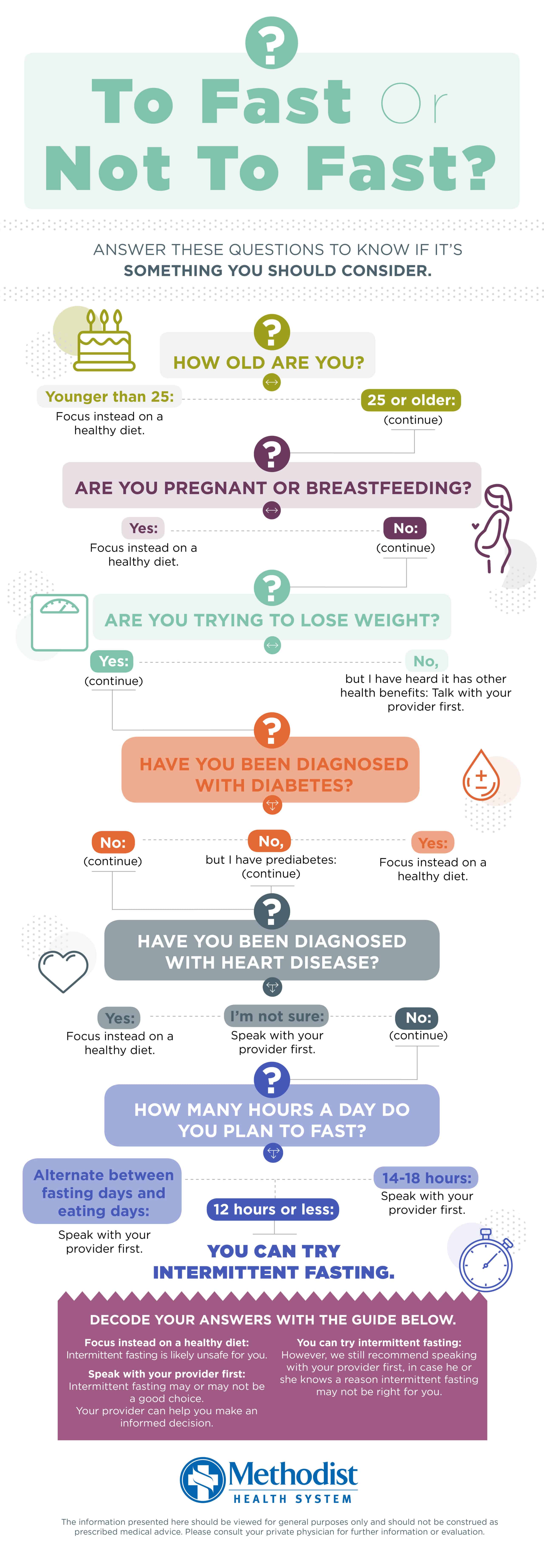Learn what intermittent fasting is, whether it’s good for you, and what the experts have to say.
Many diets focus on restricting certain food groups or amounts, but intermittent fasting shifts the focus from what to when. Intermittent fasting diets cut down the number of calories you consume with scheduled periods of time where you don’t eat anything. With intermittent fasting, you choose an “eating window” of 8, 10, or 12 hours, during which you can eat whatever you want (although healthy diet choices are still recommended). For the remaining hours, usually including when you are asleep, you fast.
Other diets encourage fasting days. Similar to daily intermittent fasting, these diets allow you to eat whatever you want during your non-fasting days. On the days you choose to fast, you severely limit your calorie intake. Some diets encourage you to eat 500 calories or fewer on your fasting days; others say to avoid any food or drinks with calories. Beverages without calories, such as water or black coffee, are permitted. Scheduled fasting days can range from twice a week to every other day.
Fans of intermittent fasting claim it helps with weight loss, mental clarity and focus, and other health benefits, but that doesn’t mean it’s right for everyone. Here is what we know about intermittent fasting:
Can intermittent fasting help me lose weight?
“Intermittent fasting can be an effective weight-loss strategy for people who could benefit from a structured schedule,” says Carey Shore, MS, RD, LD, dietitian and wellness coach at Methodist Health System. “If it prevents overeating, especially in the evening hours, when we all love to snack, then it can work. I favor the fasting schedule such as 6 in the evening until 10 in the morning for this very reason.”
It can lower your body’s insulin levels, which allows your cells to release stored fat. Your body then burns the fat as energy, and you lose weight.
Are there other health benefits to intermittent fasting?
Some research suggests intermittent fasting can slow down the aging process or combat heart disease, but that research is inconclusive. One study published in Cell Metabolism showed that patients with metabolic syndrome were able to lose weight and lower their blood pressure by using a daily intermittent fasting schedule, allowing for a 10-hour eating window followed by a 14-hour fast. However, the study was very small, with only 19 participants.
“There is so much we do not know about intermittent fasting, such as long-term benefits, which type of fast is best, and more,” Shore says. “Because of this, use caution when approaching any kind of diet. Get the green light from your primary health care provider, especially if there are any existing health conditions. Fasting is not for everybody.”
A daily, 12-hour eating window and 12-hour fast is safe for most people to attempt, according to the National Institutes of Health, but otherwise, there are still important things we need to learn.
If you think you might benefit from intermittent fasting, speak with your provider. He or she can help you create a plan to meet your specific needs and goals.


